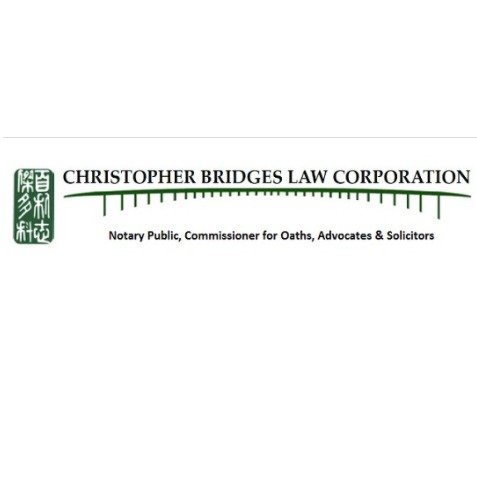Best Landlord & Tenant Lawyers in Alexandra
Share your needs with us, get contacted by law firms.
Free. Takes 2 min.
Free Guide to Hiring a Real Estate Lawyer
List of the best lawyers in Alexandra, Singapore
About Landlord & Tenant Law in Alexandra, Singapore
Landlord and tenant law in Singapore, including Alexandra, is designed to regulate the leasing arrangements between property owners and their tenants. This area of law addresses various aspects such as tenancy agreements, rental disputes, maintenance responsibilities, and termination procedures. Understanding the local nuances and regulations is essential for both landlords and tenants to ensure their rights and obligations are upheld.
Why You May Need a Lawyer
Legal advice may be necessary for several situations involving landlord and tenant arrangements in Alexandra, Singapore. Common issues include negotiating lease agreements, dealing with eviction notices, resolving deposit disputes, and understanding tenants' rights in cases of property maintenance and repairs. A lawyer can provide valuable guidance in navigating these and other complex scenarios, ensuring that your interests are adequately protected and that you are complying with all legal obligations.
Local Laws Overview
The primary legislation governing landlord and tenant relationships in Singapore is the Residential Tenancies Act. Key aspects include:
- Security Deposit: Typically, one to three months' rent, held for the duration of the lease.
- Rental Increases: Not usually allowed during a fixed lease term unless specified in the agreement.
- Repairs and Maintenance: Landlords are generally responsible for major repairs, while tenants handle minor maintenance.
- Termination of Tenancy: Either party must give adequate notice, as specified in the lease, to end the tenancy legally.
- Rental Disputes: These are usually mediated through the Small Claims Tribunals for efficient resolution.
Frequently Asked Questions
What is the standard notice period for terminating a tenancy agreement?
The standard notice period in Singapore is typically one to three months, but it should be explicitly stated in the tenancy agreement.
What can I do if my landlord refuses to return my security deposit?
If there is a dispute over the return of a security deposit, tenants may file a claim with the Small Claims Tribunals for a resolution.
Can a landlord increase my rent during my lease period?
Rent increases are generally not permitted during a fixed-term lease unless there is a specific clause in the tenancy agreement allowing for it.
Who is responsible for repairs and maintenance?
Landlords are typically responsible for major repairs, while tenants are expected to handle minor maintenance issues unless specified otherwise in the lease.
What should I do if my tenant doesn't pay rent?
The landlord should issue a written notice specifying the breach and if unresolved, may consider legal action or mediation through the Small Claims Tribunals.
Are verbal tenancy agreements legally binding?
While verbal agreements can be considered binding, it is always recommended to have a written contract to avoid potential disputes.
Can I sublet my rental property?
Subletting is only permissible if the original lease agreement allows it, and often requires the landlord's consent.
How do I handle noise complaints from tenants?
Address the issue constructively and involve the management or local authorities if necessary to mediate the dispute.
What legal actions can I take against a destructive tenant?
Document all instances of damage, communicate issues formally, and seek legal advice or file a claim if necessary through the relevant legal channels.
Can my landlord evict me without notice?
No, landlords must provide proper notice as per the tenancy agreement and conform to legal procedures before eviction.
Additional Resources
For additional help or information, consider reaching out to these resources:
- The Singapore Ministry of Law: Offers guidance and resources for landlord and tenant-related inquiries.
- Small Claims Tribunals: A court that provides quick and inexpensive ways to settle disputes and recover claims of small amounts.
- Singapore Tenants’ Association: Provides support and advice to tenants regarding renting issues.
- Law Society of Singapore: Can refer you to qualified lawyers with expertise in landlord-tenant matters.
Next Steps
If you require legal assistance with landlord and tenant issues, consider the following steps:
- Review your tenancy agreement and any relevant documents thoroughly.
- Document any issues or disputes clearly, with supporting evidence if possible.
- Contact a legal professional specializing in landlord and tenant law for personalized advice.
- Consider mediation or legal proceedings if informal negotiations do not resolve the issue.
- Reach out to relevant local bodies for additional support and information.
Lawzana helps you find the best lawyers and law firms in Alexandra through a curated and pre-screened list of qualified legal professionals. Our platform offers rankings and detailed profiles of attorneys and law firms, allowing you to compare based on practice areas, including Landlord & Tenant, experience, and client feedback.
Each profile includes a description of the firm's areas of practice, client reviews, team members and partners, year of establishment, spoken languages, office locations, contact information, social media presence, and any published articles or resources. Most firms on our platform speak English and are experienced in both local and international legal matters.
Get a quote from top-rated law firms in Alexandra, Singapore — quickly, securely, and without unnecessary hassle.
Disclaimer:
The information provided on this page is for general informational purposes only and does not constitute legal advice. While we strive to ensure the accuracy and relevance of the content, legal information may change over time, and interpretations of the law can vary. You should always consult with a qualified legal professional for advice specific to your situation.
We disclaim all liability for actions taken or not taken based on the content of this page. If you believe any information is incorrect or outdated, please contact us, and we will review and update it where appropriate.








